Chapter 4, Part 4
As the Age of Discovery began in the 15th century, Portugal and Castille (Spain) sent a large number of maritime missions to seek direct sea route from Europe to India and the fabled Spice Islands, as well as to discover lands previously unheard to the Europeans. With the Atlantic Ocean at their doorstep, it was natural that both countries were the ones who commenced global exploration in a scale no other European nation had ever attempted.
The competition between Portugal and Spain, however, escalated upon Christopher Columbus’ return to Europe after rediscovering America. Columbus, whose mission was sponsored by the Crown of Castille, arrived in Lisbon before he reached Spain. In the Portuguese capital he informed King João (John) II about the Terra Firma he discovered across the Atlantic, much to the king’s resentment for it was a clear violation of multiple treaties signed by both nations. Portugal was hitherto entitled for any new lands discovered south of Cape Verde, hence according to the Portuguese king America should belong to him.
Pope Alexander VI brokered a treaty to solve the matter between Portugal and Spain. Signed in Tordesillas, the treaty divided the newly discovered lands between both nations along a meridian west of Cape Verde. The lands to the east of the meridian would belong to Portugal, and the lands to the west to Spain. Over the years the exact location of the meridian constantly changed, although the east-west division remained. The treaty became a solid base for the Spaniards to launch massive expeditions to the Americas, and for the Portuguese to send their best navigators and explorers to India, Southeast and East Asia.
As both nations scoured the world from different directions, a problem would soon arise: where was the boundary of the Portuguese and Spanish newly conquered lands at the opposite side of the Tordesillas meridian?
In the faraway Spice Islands, Ternate – a small island about the same size with Paris’ core city area – together with nearby islands were the only places in the world where clove grew. Known in Europe as clavo, cravo-da-índia, clou de girofle and chiodo di garofano, cloves were introduced to the Europeans by Arab traders in the fourth century. The route to the source of the spice, however, was kept secret by the Arabs, lending the commodity an even more exotic appeal.
Having been frequented by Arab, Chinese, Indian and Javanese merchants since the first millennium AD, in 1512 – one year after the fall of Malacca – Ternate received its first ever Portuguese on its soil by the name of Francisco Serrão who was tasked by Afonso de Albuquerque to find the Spice Islands. Serrão remained on the island and sent a letter about the Spice Islands to his cousin, Fernão de Magalhães, who would convince King Charles I of Spain to sponsor his expedition.
Serrão’s cousin, better known by his Spanish name Ferdinand Magellan, set sail to the west to find the other route to the Spice Islands. Magellan was the first person who managed to find a passage from the Atlantic to the Pacific Ocean in South America, and eventually in March 1521 his expedition reached the Philippines. Eight months later the expedition reached Tidore, a small island neighboring Ternate, marking Spanish arrival in the Spice Islands. However Magellan was killed when he was in the Philippines, and Serrão mysteriously died in Ternate around the same time.
Spain and Portugal, two rivaling neighbors in the Iberian Peninsula, were now separated on the other side of the world only by a narrow strait. Upon their archrival’s success in reacing these remote islands from the west of Europe, the Portuguese reacted quickly by fortifying their strongholds as subsequent skirmishes would shortly emerge between the two European powers. One year after Spanish arrival in Tidore, Fort Kastella was built by the Portuguese on Ternate, and over time both nations constructed more forts on their respective possession in this far-flung corner of the world. Due to the increasing enmity between them, in 1529 King John III of Portugal and Emperor Charles V of Spain signed a treaty in Zaragoza, determining the antimeridian of Tordesillas.
Problems for the Portuguese did not subside, though, as they were increasingly active in converting the local people who were known for being staunchly Muslim. This, and the constant threat from the Spanish across the narrow strait, forced the Portuguese to withdraw altogether from Ternate – a situation the Spanish were quick to exploit by taking over some former Portuguese forts on the island. However tensions between the Spanish and the locals would soon escalate, and in 1606 the Spanish captured Said Barakat Shah – the Sultan of Ternate – and put him into exile in Manila, already a Spanish colony by that time.
By the early 17th century the southern part of Ternate was occupied by the Spanish and the rest by the Dutch, a new European power who were late in joining the spice race but would rise into a colonial superpower in the region. In a clever strategy to gain support from the local populace, the Dutch made an alliance with the Sultan of Ternate to repel the Spanish forces not only from his land, but also from Tidore, his main rival. The Dutch ambition to control the Spice Islands would soon prove to undermine Ternate’s ambition to weaken Tidore. In the end the Spanish forces retreated from Tidore and the Spice Islands completely in 1663 to the Philippine Islands.
Before long, the Dutch strengthened their grip on Ternate, Tidore and eventually all islands in the Moluccas (present-day Indonesian provinces of Maluku and North Maluku). Old forts were fortified, new forts were constructed, and a monopoly on the clove trade was made possible by the eradication of most clove trees on Ternate, Tidore and nearby islands. As demand remained high but supply was significantly lowered, the clove was sold at exorbitant prices, thus providing the Dutch with even greater profits. Until a few years ago Afo, the oldest clove tree ever recorded in history, still stood tall and alive on the fertile slopes of Mount Gamalama. However since Afo had died, today Afo 2 is the oldest surviving clove tree in the world with only one branch still bearing leaves and clove buds.
As the spice trade had declined substantially by the 19th century, so had the importance of the Spice Islands to the Dutch. The once wealthy Ternate and Tidore had largely been ignored by both the Dutch and the Indonesian central government following the archipelago’s independence in 1945. They had been serving as quiet outposts amid a chain of small volcanic islands in the sprawling Indonesian archipelago. However soon after the fall of Suharto – Indonesia’s dictator for 32 years – sectarian conflicts flared up across the nation, and the bloody incidents in the Maluku Islands were among the worst in the history of modern Indonesia.
Peace was restored three years later, and gradually life returned to how it was before the conflicts. Ternate, as the provisional capital of the newly-formed North Maluku province, grew rapidly with local businessmen as well as others from across the nation setting up new shops, restaurants and hotels, reviving the once spice-reliant economy into a thriving city in this northeastern corner of Indonesia. With a much smaller population than Ternate, Tidore today is a very quiet island where daily life goes by in a very sedate pace. It must have looked very different back in the time when rivalry with its neighbor across the strait was at its height centuries earlier.
Towns and villages on Tidore are connected by a decent network of roads with street lights installed at some intersections, although none of them worked – either because they are broken or simply because the low traffic doesn’t require them to be turned on. Streets on Ternate, on the contrary, are always bustling with traffic and activities, as if the stark contrast between the two islands could not have been more striking. Nevertheless, both Ternate and Tidore still live with vestiges from the past, including with how the locals call potatoes: batatas on Ternate (from Portuguese) and patatas on Tidore (from Spanish). Remnants of a time when these islands were sought after by the Europeans will likely to endure the test of time.
Click here for the full list of stories from the Spice Odyssey series.
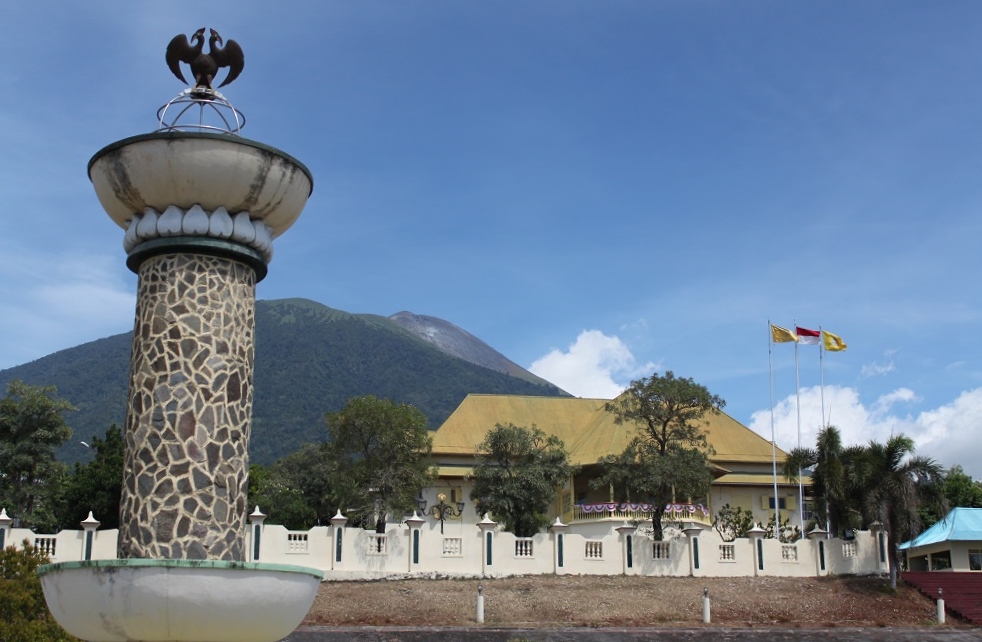
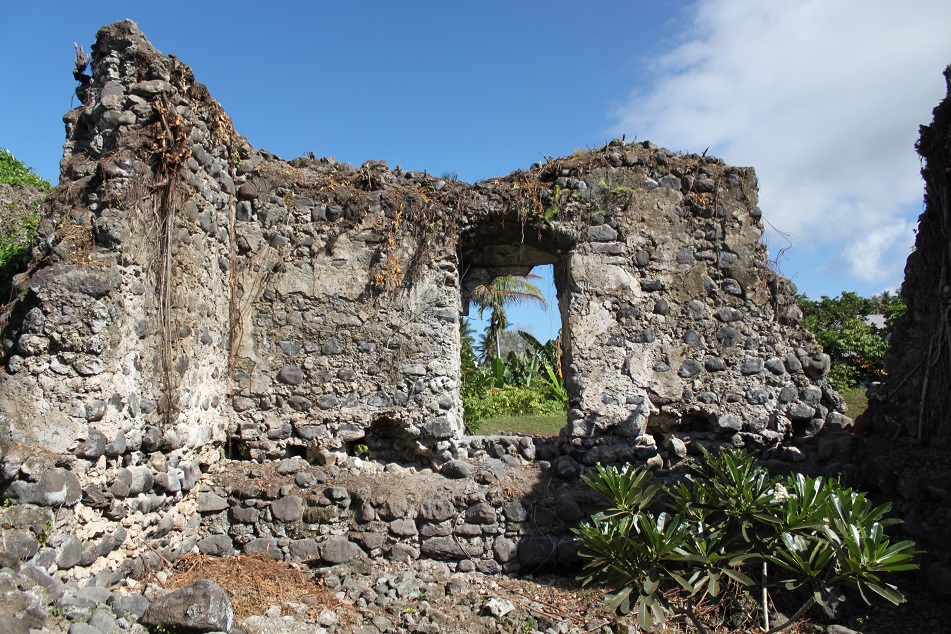
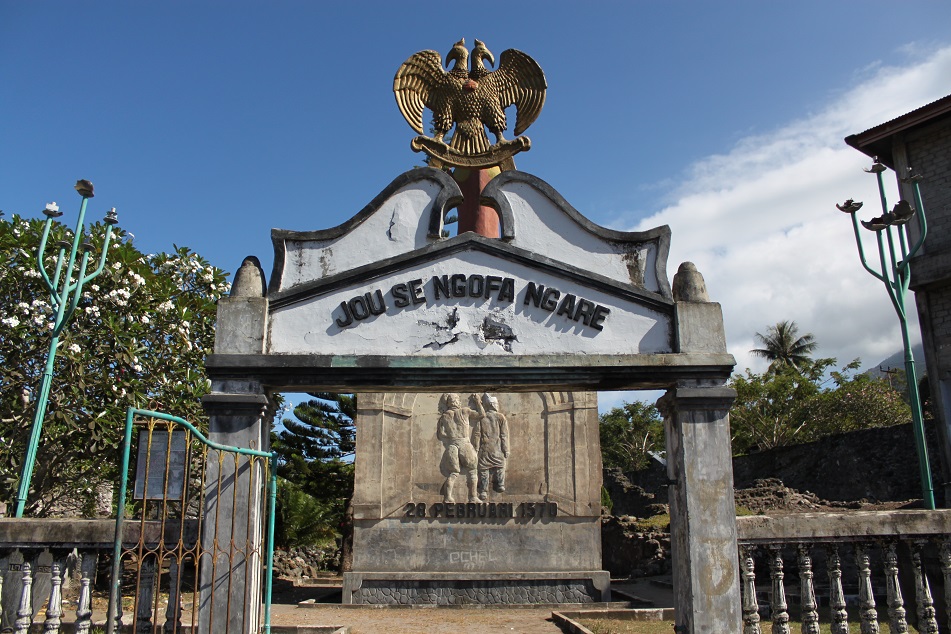
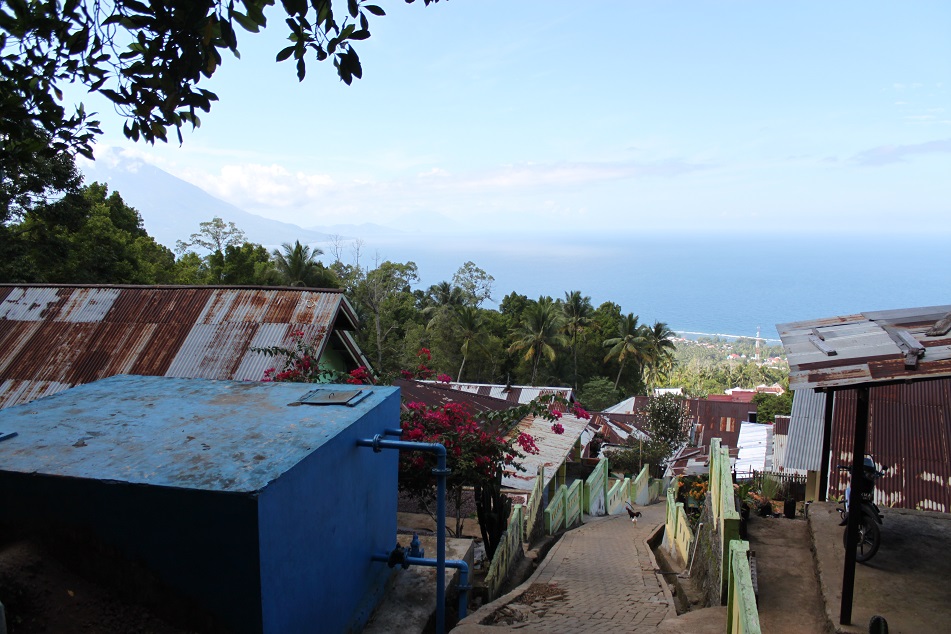
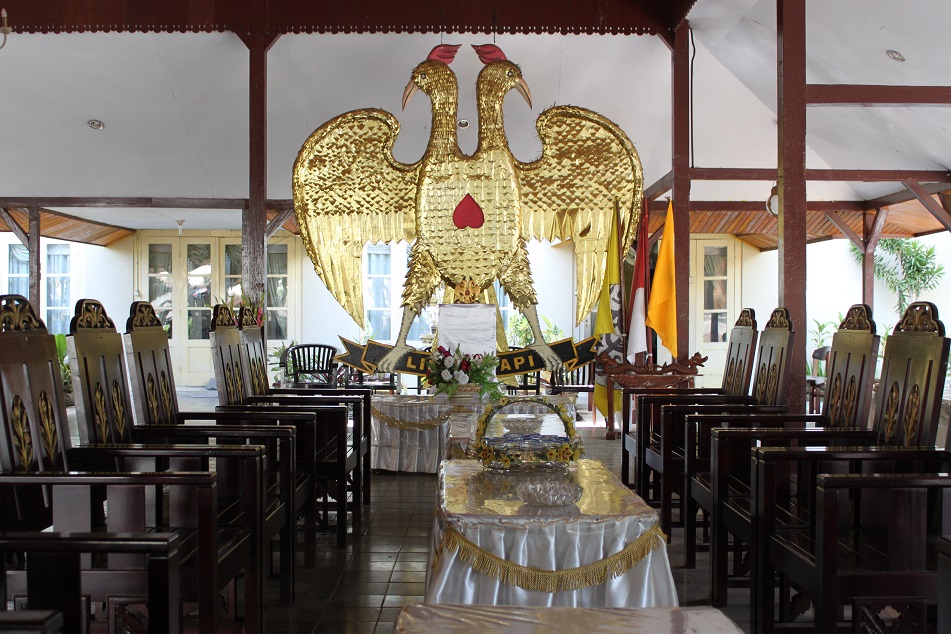
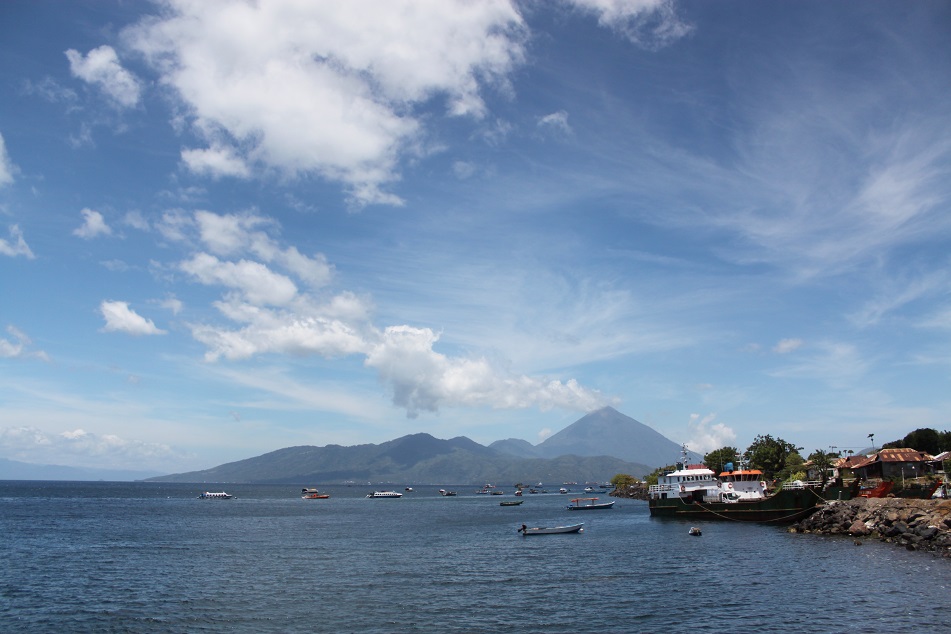
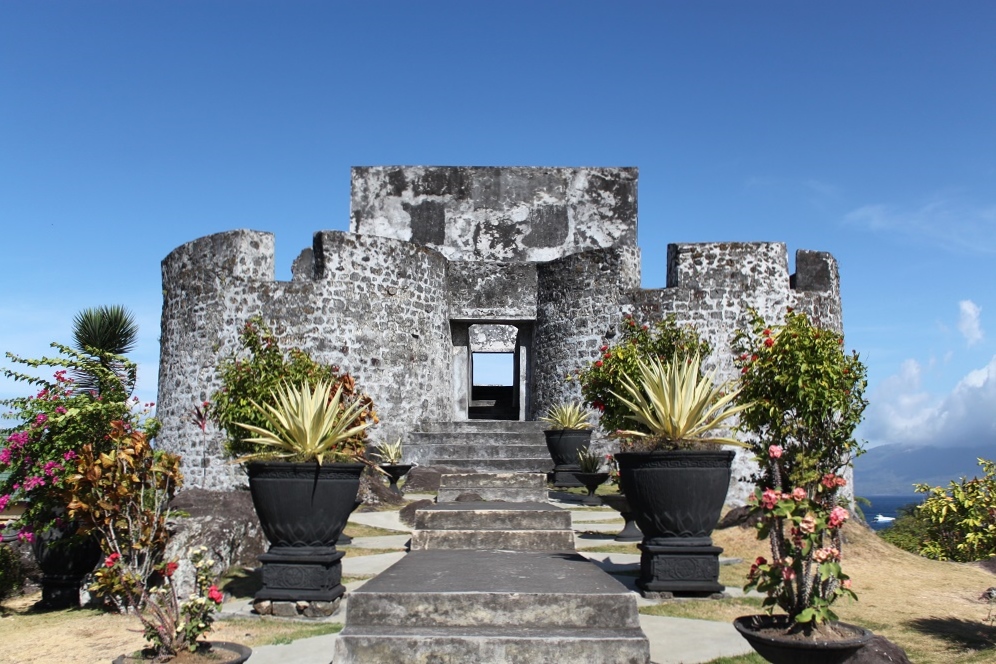
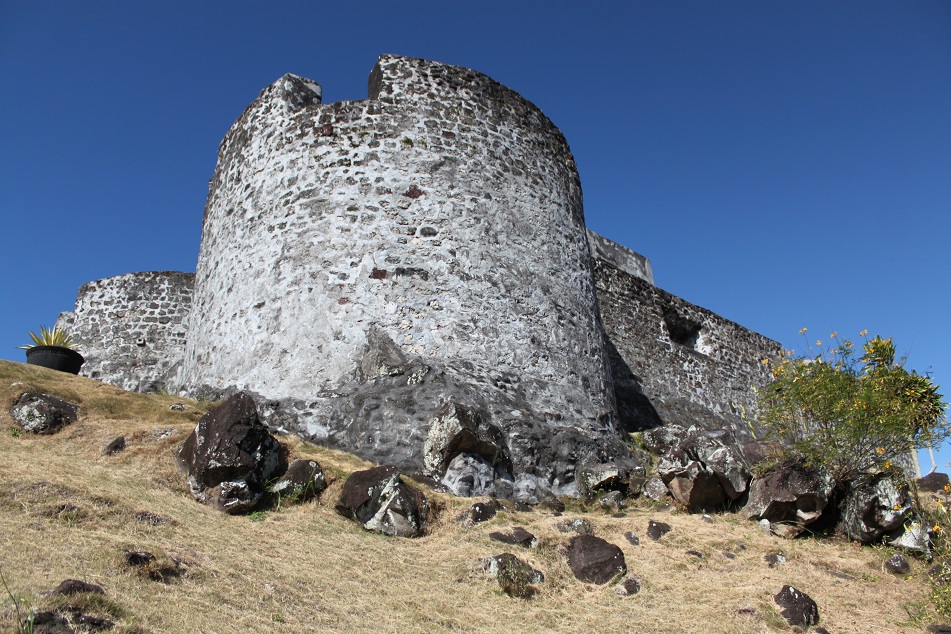
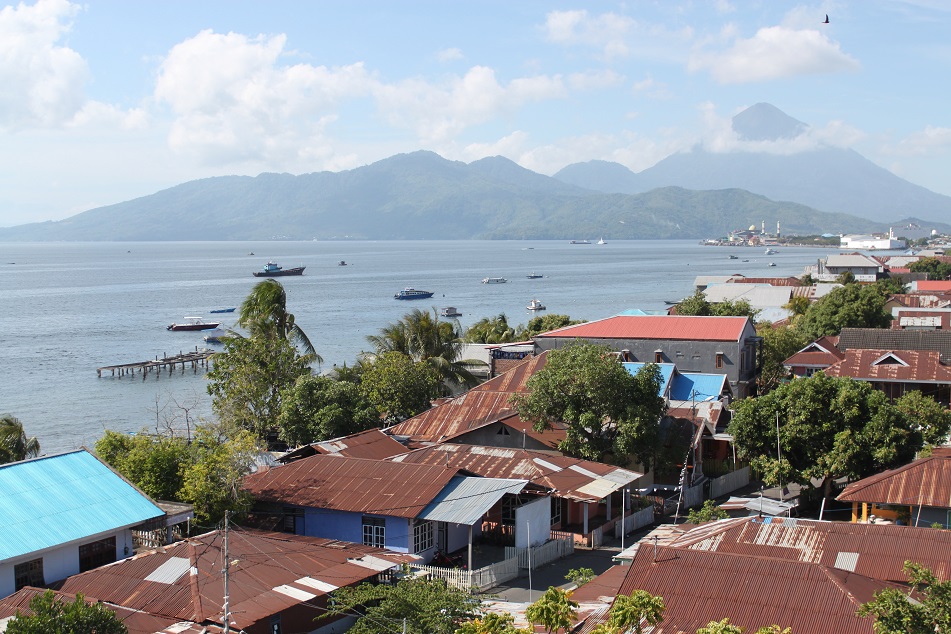
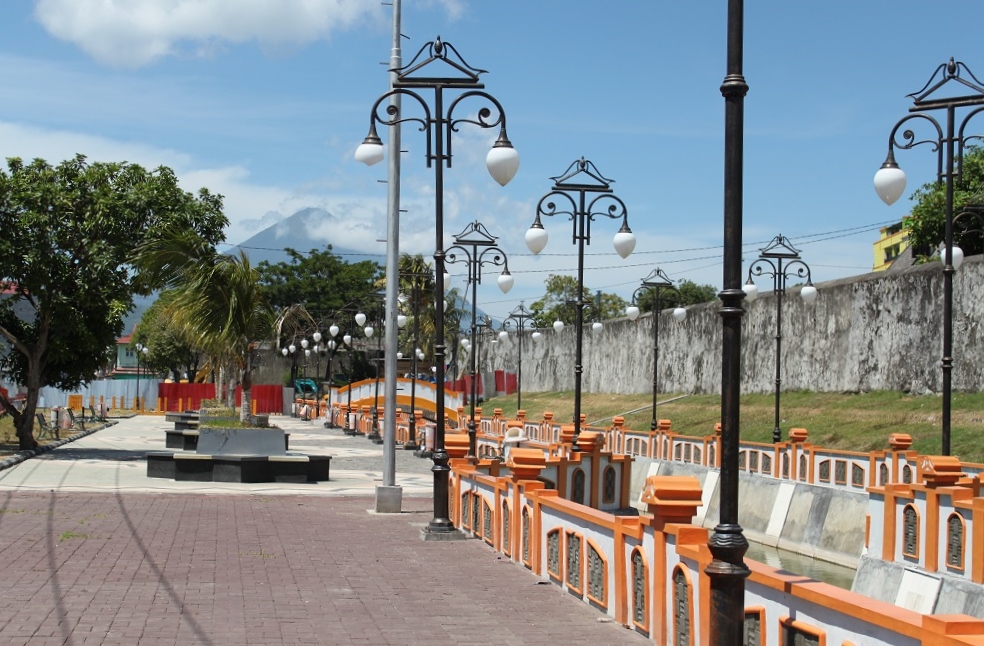
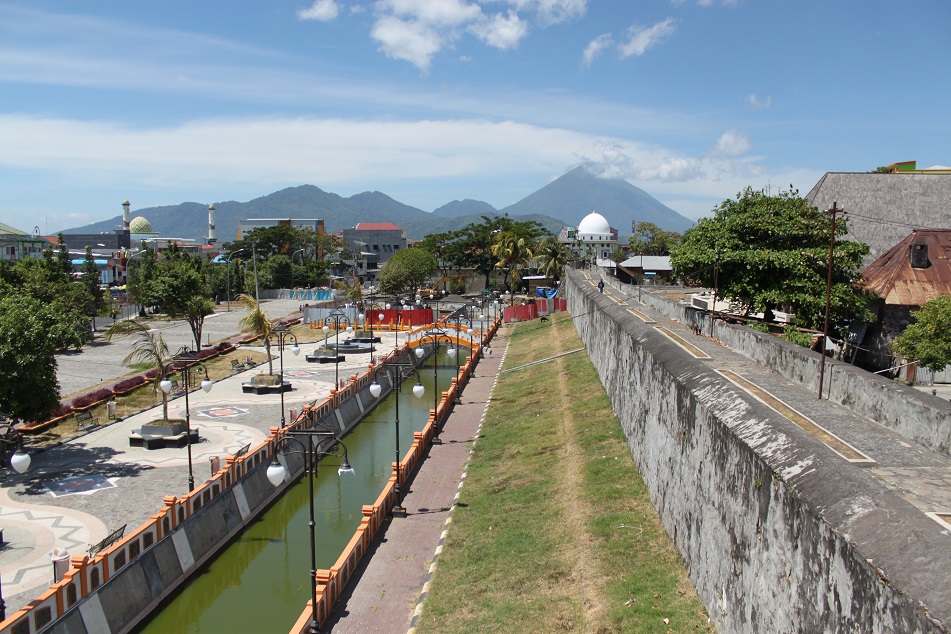
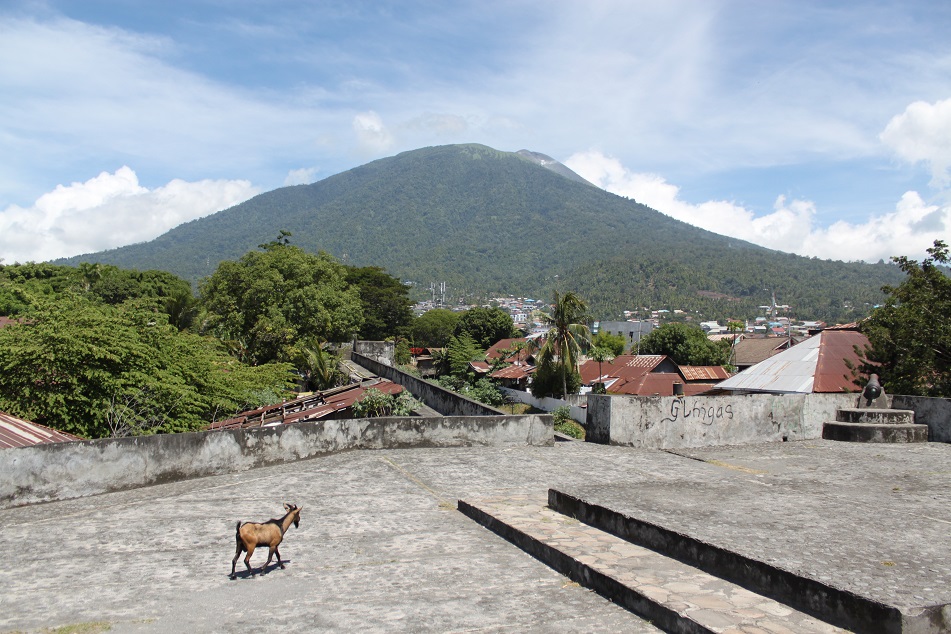
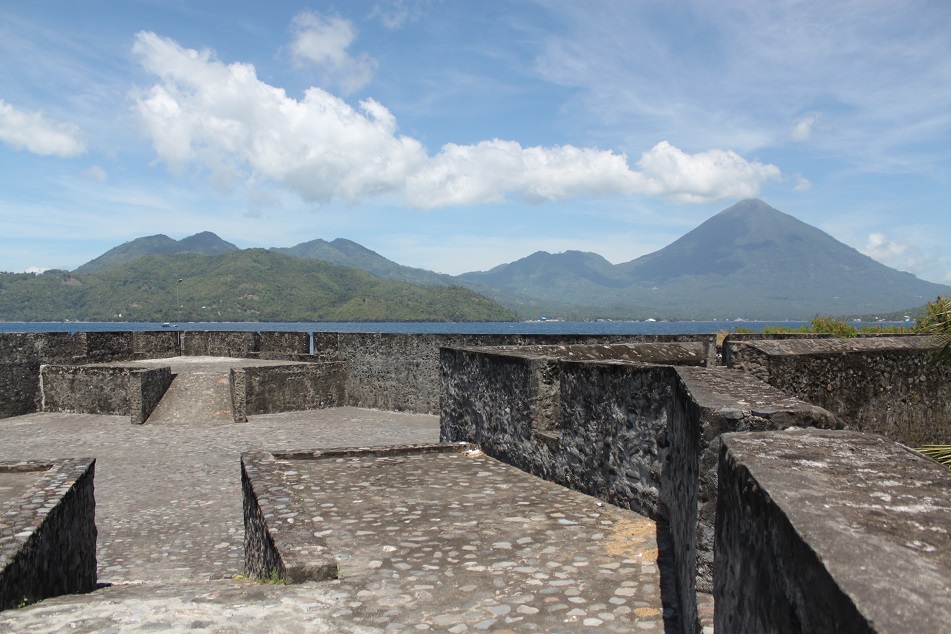
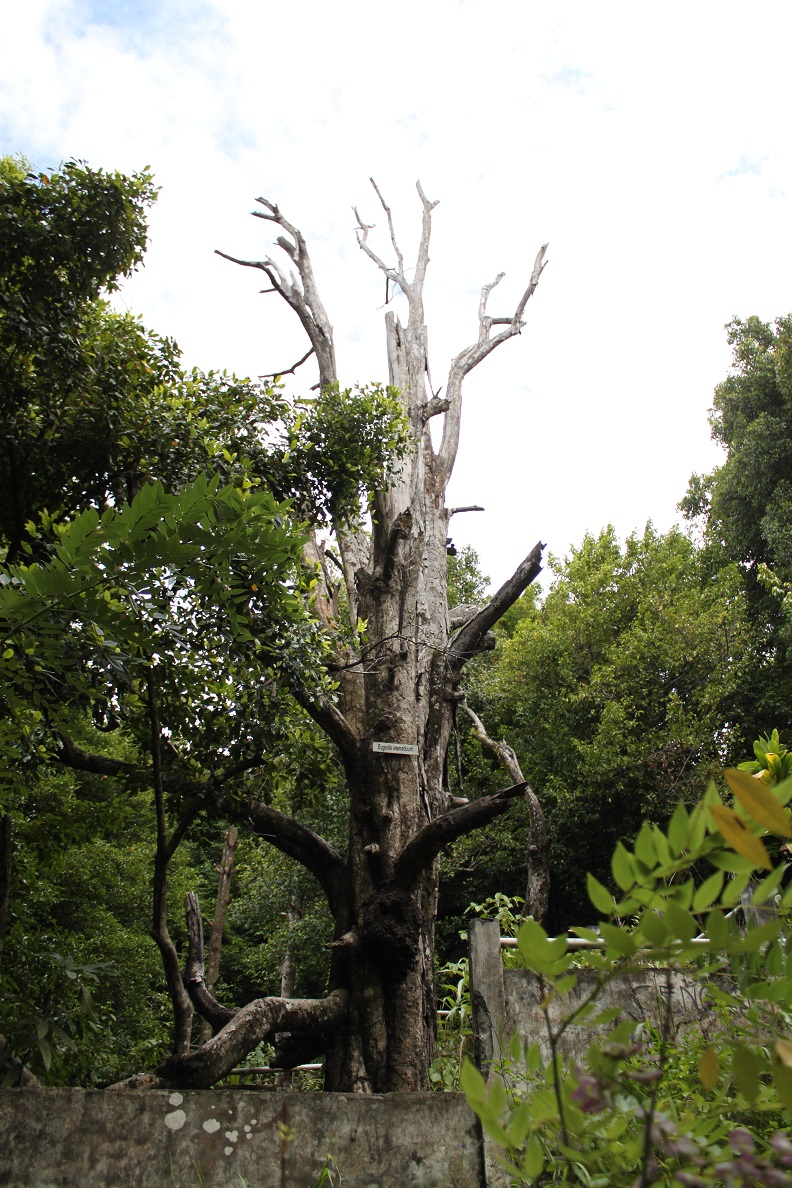
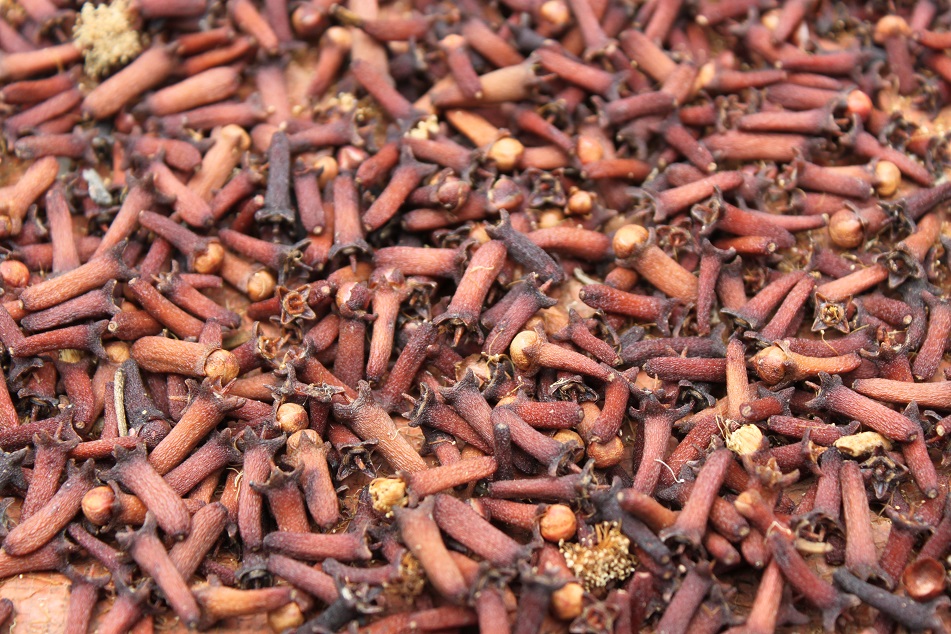
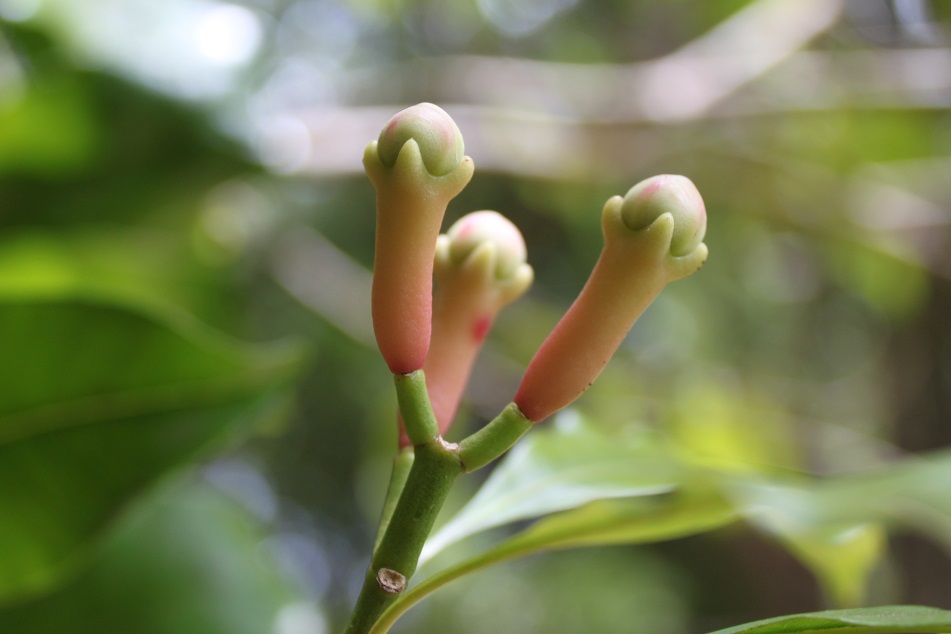
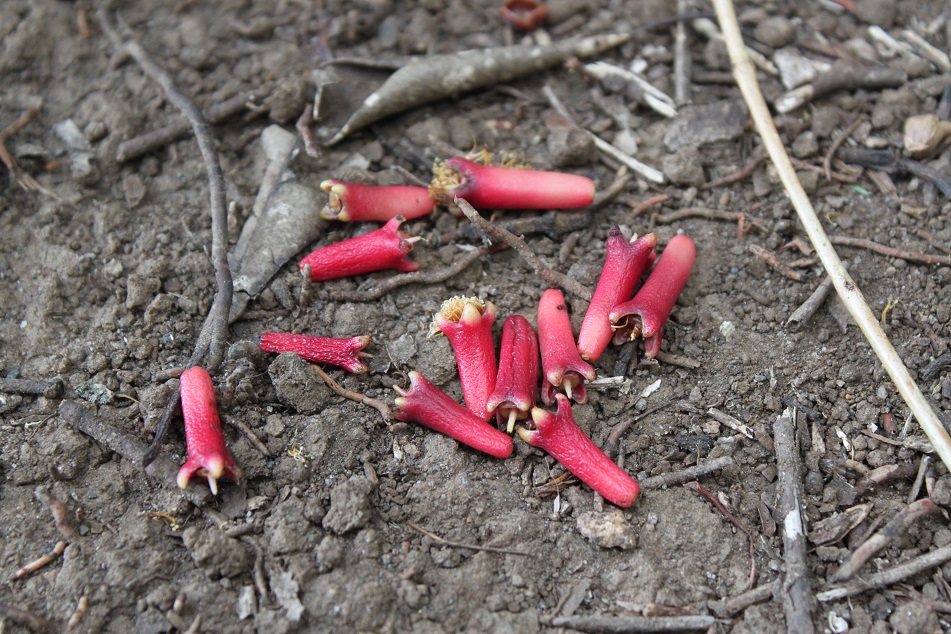
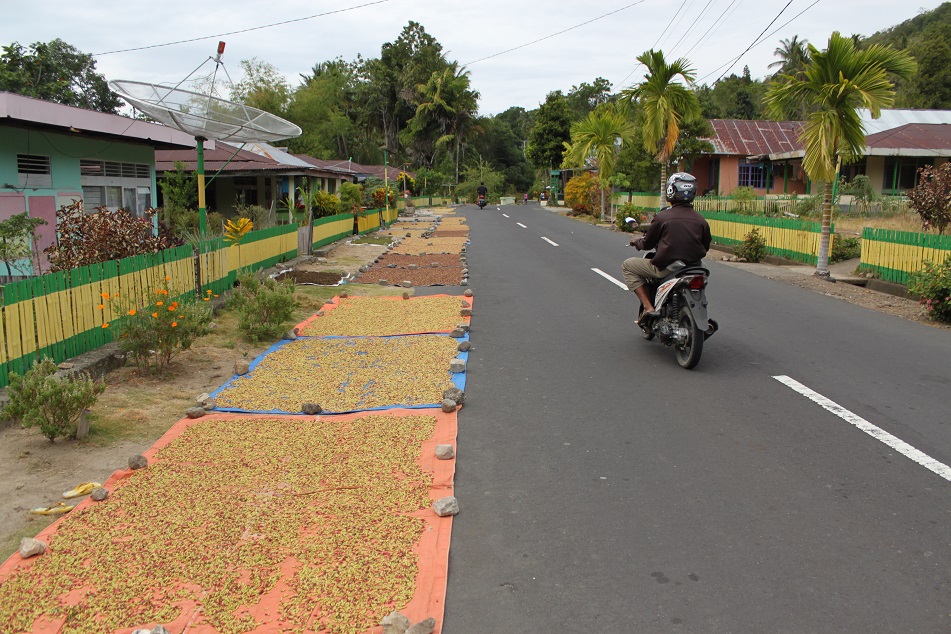
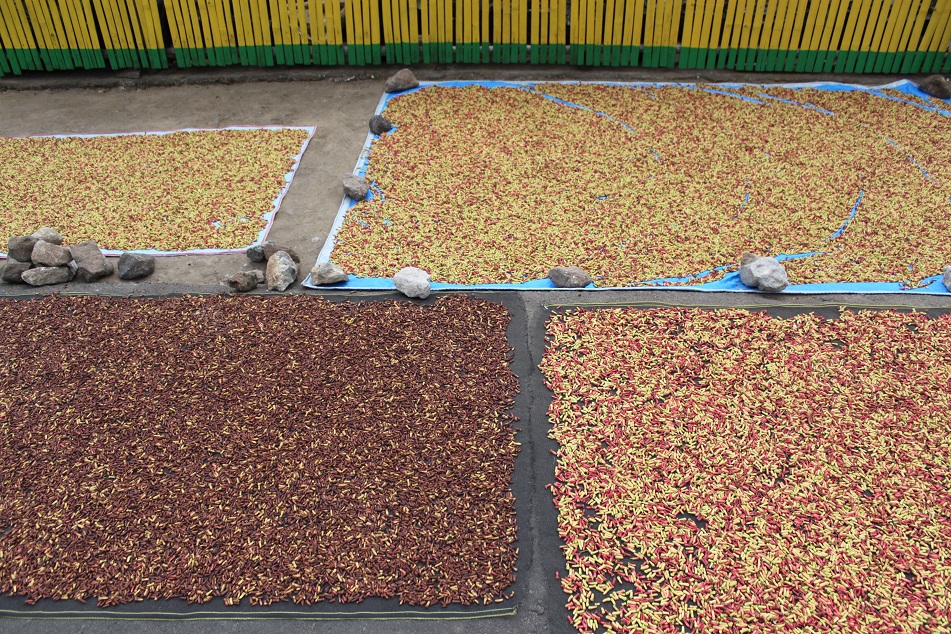
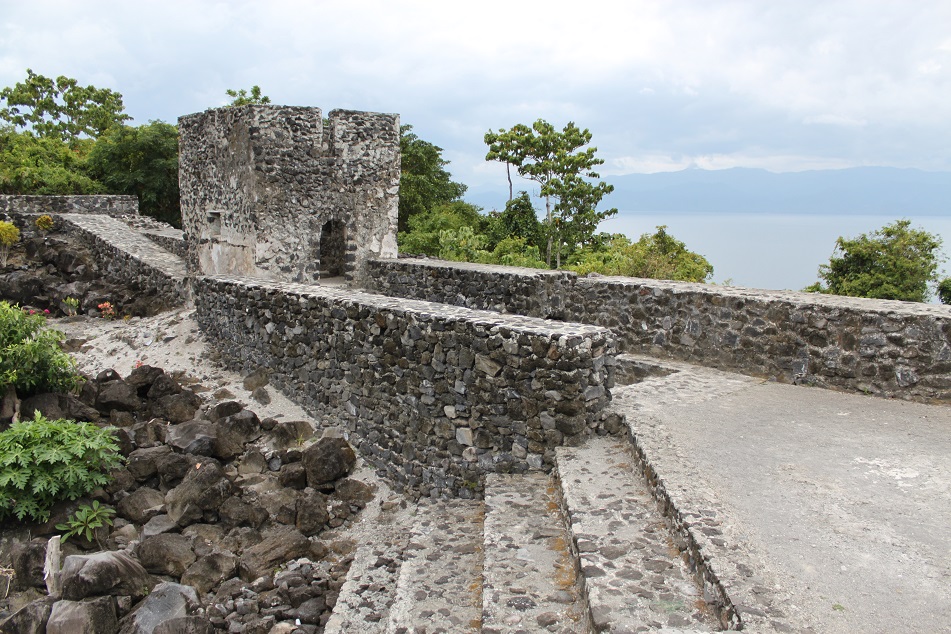
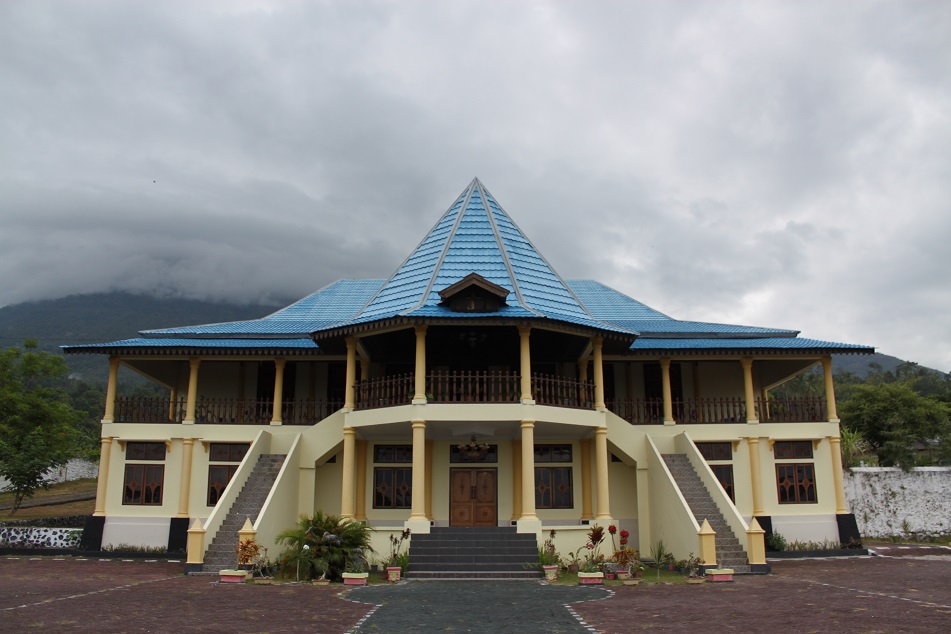
Duh pagi-pagi baca soal Ternate, bikin saya tarik selimut buat ngumpet, maluuu soalnya belom pernah kesana padahal sodara-sodara bertebaran di Maluku.
Baca post ini jadi makin tau tentang sejarah rempah ke Eropa. Padahal barangnya kecil amat ya… pedes lagi rasanya. Dulu ingetnya disuruh oma ngemut kalo lagi sakit gigi hahaha.
Jadi foto makanannya cengkeh ya? Hahahaha…
LikeLike
Tarik selimut buat ngumpet atau karena pagi-pagi hujan mbak? 🙂
Kalo liat cengkeh sama pala sekarang pasti banyak yang gak nyangka sih kalo dua rempah-rempah itu dulu sangat dicari oleh bangsa Eropa, sampe-sampe mereka rela menjelajah samudra untuk menemukan rute langsung ke Maluku.
Foto makanan yang benerannya belum mbak, hehe.
LikeLiked by 1 person
Buat dua2nya.. hahaha…
Btw, kata James mas Bama ga mau pulang yaaaa dari Jepang hahahaha… sama dong, kayaknya waktu cepet banget yaaa.
LikeLike
Iya mbak. Pengennya seminggu lagi di sana, hehe..
LikeLiked by 1 person
Belum pernah ke Ternate, apalagi tidore. Kalau di Kepulauan Maluku, saya pernahnya ke Pulau Ambon saja.
.
Negeri ini memang kaya banget ya Bam. Wajar kalau diburu oleh asing. Jadi penasaran sama rempah yg di foto itu. Belum pernah liat secara langsung.
LikeLike
Kalau suka sejarah dan alam harus deh ke Ternate dan Tidore. Banyak benteng peninggalan Eropa yang mengingatkan kita akan pentingnya kedua pulau itu pada zaman dulu. Dan secara gak langsung masa tersebut merupakan permulaan dari era kolonialisme Eropa di seluruh belahan dunia.
LikeLiked by 1 person
Bama, reading this account (and seeing your photos) was a real pleasure – you took me right back to our incredible week in Ternate and Tidore. The rich history of those two islands, the lush scenery, and wonderful local food all left a deep impression on me. It’s strange that neither of us felt the need to buy cloves straight from the source, even though it was harvest season on Tidore. If I could, I’d go back in a heartbeat!
LikeLike
You have a point, James. Unlike the nutmeg we bought in Banda, somehow we didn’t think of buying cloves when we were in Ternate and Tidore. Both islands were definitely among the highlights of our six-month trip last year, and the fact that Ternate was not touristy at all only added to its appeal. The next time we go, we should take a bigger plane!
LikeLiked by 1 person
What a great post as always Bama. It’s always interesting when you see spices these days in the supermarkets, you think they’re just there, they’re easy to get and you can get almost any kind of spices so easily. Reading posts like these however, really makes me appreciate the history of these spices more, and of course how lucky we are to be living in a place abundance with these rich spices.
LikeLike
We often take our food for granted. It’s fascinating as well as sobering to learn the history of the spices our mothers use in their kitchens, and how commodities we are so used to having today had a major significance in the past. After the trip, now I see dishes quite differently. Whenever I spot a clove bud or pieces of nutmeg, I always remember that chapter in history when spices fueled a global exploration. Thanks for reading and sharing your thought, Aggy.
LikeLike
Baca penuturan Bama tentang Ternate Tidore di sini jadi nostalgia dengan buku pelajaran sejarah di sekolah. Sekaligus meratapi kegagalan rencana trip Maluku yang sedianya akan dimulai akhir bulan lalu. 😀 Mengumpulkan semangat 45′ lagi setelah baca ini. Kisah kejayaan rempah Nusantara memang selalu membius. 🙂
LikeLike
Bener Halim. Saya masih inget waktu SD membaca nama-nama seperti Ternate, Malaka dan Banda yang dulu gak kebayang tempatnya di mana dan seberapa jauh dari Jawa. Trip ke Maluku dan Maluku Utara tahun kemarin bener-bener membuka mata akan pentingnya Kepulauan Maluku di masa lampau, pendorong bangsa-bangsa Eropa untuk menjelajahi dunia. Semoga tripmu ke Maluku bisa terwujud segera ya Halim.
LikeLike
Cengkeh… sepertinya memang baru di Ternate dulu saya melihat komoditas yang dijemur di pinggir-pinggir jalan dekat bandara itu adalah cengkeh dan bukan gabah. Oh, dan saya suka sekali transportasi umum di Ternate! Satu moda angkutan yang paling keren menurut saya, hehe. Jadi kangen lagi dengan benteng-benteng itu. Apalagi dengan lokasinya yang di pinggir lautan yang begitu… teduh.
Kadang agak kesal sih dengan para bangsa asing yang mengaku penjelajah itu–ujung-ujungnya yang mereka lakukan hanya saling berkelahi di rumah orang. Benar-benar di rumah orang. Yah, kadang pemikiran manusia bisa jadi begitu sempit, tapi di saat bersamaan mereka dianggap paling berilmu.
LikeLike
Nah, justru sebelum saya melakukan perjalanan ke Maluku dan Maluku Utara tahun kemarin, di kunjungan saya ke Bali bagian utara saya mencium aroma cengkeh di udara. Aroma yang menurut saya wangi dan menyenangkan asalkan tidak dibakar dalam bentuk rokok kretek. Mengenai transportasi umum di Ternate, sayangnya saya gak sempat coba soalnya kemana-mana selalu naik sepeda motor yang disewa dari pemilik penginapan. Berdasarkan pengalaman Gara kerennya gimana? Jadi penasaran.
Segala bentuk penjelajahan saya rasa awal mulanya didasari oleh rasa penasaran manusia. Kemudian biasanya mengikut lah kepentingan ekonomi dan bisnis yang memungkinkan penjelajahan yang dilakukan bisa lebih lama dan mencapai wilayah-wilayah yang lebih jauh. Sampai saat ini sepertinya polanya masih kurang lebih sama (misalnya dalam hal eksplorasi sumber daya alam yang seringkali berujung pada eksploitasi).
Ilmu seyogyanya memang kita dapatkan dari berbagai sumber, baik itu dari timur, utara, barat, maupun selatan. Ilmu seharusnya memperkaya khasanah pengetahuan kita agar kita dan masyarakat bisa menjadi semakin baik dari waktu ke waktu. Namun tidak jarang ilmu baru diserap mentah-mentah tanpa mempertimbangkan nilai-nilai luhur yang sudah dijalankan. Di lain sisi, terjadi juga ilmu baru justru ditolak mentah-mentah tanpa dipertimbangkan potensinya untuk meningkatkan pemahaman kita akan berbagai hal. Ada yang menganggap apapun dari Barat adalah yang terbaik, ada pula yang menganggap apapun dari Timur Tengah adalah yang harus kita ikuti, ada juga yang membanggakan negeri sendiri dengan cara merendahkan bangsa lain. Seringkali berada di tengah/moderasi biasanya memberikan hasil yang terbaik bagi semua pihak.
LikeLike
Wah, Bali Utara? Hm, saya belum pernah cium wangi cengkeh Mas di sana, yang saya kenali sejauh ini cuma aroma garam yang menyengat…
Saya mau info penginapannya dong Mas. Lumayan kalau ada sepeda motor bisa keliling pulau betulan, hehe.
Angkotnya seru karena selain musiknya kencang dan asyik, ia bisa mengantar ke mana saja bagaikan taksi pribadi, haha.
Saya setuju Mas, ilmu seyogianya menjadikan seseorang bijak, karena cerdas saja belum cukup. Tak ada gunanya kecerdasan tanpa sikap bijak. Duh, ini jadi pengingat buat saya juga supaya berusaha menambah ilmu tapi tetap bijak, hehe. Terima kasih atas jawabannya, hehe.
LikeLike
Berarti saya lagi beruntung waktu itu, hehe.
Saya di Ternate nginap di Villa Ma’rasai dekat Universitas Khairun, agak jauh dari kota sih. Tapi ownernya (Pas Hasrun dan istrinya) sangat membantu dan membuat saya jadi betah banget. Oh iya, yang saya inget dari angkot di Ternate itu musiknya kenceng semua. Kayaknya gara-gara itu di waktu-waktu tertentu di depan masjid di sepanjang jalan dipasang papan yang meminta supaya volume musik dikecilkan ketika lewat di depan masjid.
Menjadi bijak itu kayaknya bagian paling susah dari proses kita belajar sih. Ya kita sama-sama mengingatkan lah. 🙂
LikeLike
What is the above language that I don’t understand?
LikeLike
Hi Adelheid. It’s Indonesian, a language most Indonesians speak as a second language since there are more than 300 languages in the country.
LikeLike
Cloves! So cool to see where they come from! The aroma must have been divine. Great post, Bama!
LikeLike
I really love the aroma of cloves — it’s fragrant, earthy and sweet. Thanks for reading, Kelly!
LikeLike
I’ve mentioned it before, but these posts are so interesting to me as an American because we learn about European conquest of the Americas and it is amazing to think that they were simultaneously doing the same thing over in Asia and Africa. Amazing the effort they went to over spices!
LikeLike
Exactly! I grew up learning about European conquest of Asia without realizing that around the same time they were also actively seeking new lands to conquer in the Americas. Amazing the effort they went to over spices, indeed. And until recently we can also say the same about oil. It’s all about money.
LikeLike
Duch impian banget bisa ke ternate, semoga tahun depan bisa kesini
LikeLike
Amin kak Cum. Kalo udah sampe Ternate jangan lupa ke Tidore sekalian ya, suasanya lebih tenang dan sepi.
LikeLike
I saw u have 40000 followers..thas the highest I have ever seen…omg what do u do..how long u have been been blogging
LikeLike
Hi Swapnil. Well, I’ve been blogging for almost six years now and based on my experience consistency is very important. However what everyone who has a blog needs to keep in mind is that you have to enjoy what you write.
LikeLiked by 1 person
I get very demotivated sometimes.. maintaining consistency is tough..sometimes I feel like why I m writing at the first place…though I love writing…ur awesome…may u know your name
LikeLike
My About page is open for everyone to read. 🙂
LikeLiked by 1 person
Thanks budy…will do it…ur an inspiration
LikeLike
Kenal sama dua kota ini sejak SD. Coba ya Ternate & tidore skrg jd pusat rempah2 dunia..
LikeLike
Sepertinya memang mayoritas anak Indonesia mengenal nama dua tempat ini waktu SD ya. Ternate, Tidore, Bacan da Jailolo, dulu pelabuhannya sangat sibuk menerima saudagar dari berbagai belahan Asia hingga akhirnya bangsa Eropa datang dan memonopoli perdagangan.
LikeLiked by 1 person
I feel positively ignorant! I was unaware of the Spain/Portugal agreement and of these islands. One of the greatest things about reading informative blogs like yours is getting a view of history that is different from what we get in our bland (and biased) North American textbooks. Nice cloves, too – yum!
LikeLike
Hi Lex. I was too unaware of such agreement between the two until I dug deeper into the history of the spice trade. The textbooks I learned at school focused more on nationalist sentiment, which was natural since we lived under dictatorship for more than three decades. Thanks for reading! Oh and yes, cloves make a good addition to many dishes.
LikeLiked by 1 person
How much joy there was for me when I stumbled into your blog! It is filled with the most fascinating posts. The division of the world between Spain and Portugal is well known. But your photos and research on the topic make your post very special.
LikeLike
That’s very kind of you to say, Peter. Most historical textbooks can be very boring to some, but people will always enjoy images of places around the world. I try to combine both hoping that people will find history more appealing to them. Understanding what happened in the past really is key to making sense of what is happening in the world today. Again, thank you for reading and for your kind words.
LikeLiked by 1 person
A close look at the rise and fall of the Roman empire (as just one example, there are so many others) will give us a perfect mirrow image of today’s Western world, which is in my opinion at the brink of collapse. Thank you for replying to my comment, Bama!
LikeLike
I wrote something similar in some of my older posts, that empires rise and fall, and the struggle for power is a constant drive in relations among nations in the world.
One of the posts: https://harindabama.com/2016/05/01/bagan-an-empire-in-decline/
My pleasure, Peter.
LikeLiked by 1 person
Thank you for the link! I will definitely look at it.
LikeLike
Pingback: Islands that Changed the World: Ternate & Tidore — What an Amazing World! | mapsworldwide blog
Pingback: Ternate: Science and Superstition | What an Amazing World!
Pingback: Ambon: Colonialism, Peace and Music | What an Amazing World!
Pingback: Islands that Changed the World: the Bandas | What an Amazing World!
Pingback: The Banda Islands: Land and Sea | What an Amazing World!
Pingback: Madu Ganga: Following the Cinnamon Scent | What an Amazing World!
Pingback: Galle Fort: Battleground of the Europeans | What an Amazing World!
Amazing icelands , great photos and nice post.
Happy New Year 2017.
I leave you my post about celebration of New Year’s Eve in Madrid
https://traveltomeetyourheart.wordpress.com/2017/01/07/12-grapes-new-years-eve-spain-madrid/
LikeLike
Thank you for dropping by, Beata, and Happy New Year to you too! Actually my best friend who lived in Spain for nine months told me about the grape-eating tradition to celebrate new year in the country. Your post reminds me of that, and why I should visit Spain sooner than later.
LikeLike
I am welcome ! For sure you have to visit Spain – this country has a lot of nice places ! I invite to follow my blog – I am going to post more about it 😀
LikeLike
Pingback: Bounty from the Earth and Sea | What an Amazing World!
Pingback: Food Nationalism | What an Amazing World!
Pingback: The Clove Tree that Ended a Monopoly – The Treeographer
Hello Bama! I just discovered your blog, and it’s great! I’m looking forward to making my way through your archives.
I just wrote a story about the Afo Clove Tree, and linked back to this post. Hope you don’t mind!
https://thetreeographer.com/2017/09/08/the-clove-tree-that-ended-a-monopoly/
LikeLike
Hi Nick! Thanks for dropping by and linking to this post! Your latest blog post happens to be about a tree that made me and my best friend travel all the way to Ternate (and all those Europeans long before us). Such a fascinating chapter in the history of spices, isn’t it?
LikeLike
Pingback: South Sulawesi: From Cave Art to A Modern City | What an Amazing World!
Pingback: Tang Shipwreck: Digging into Controversy | What an Amazing World!